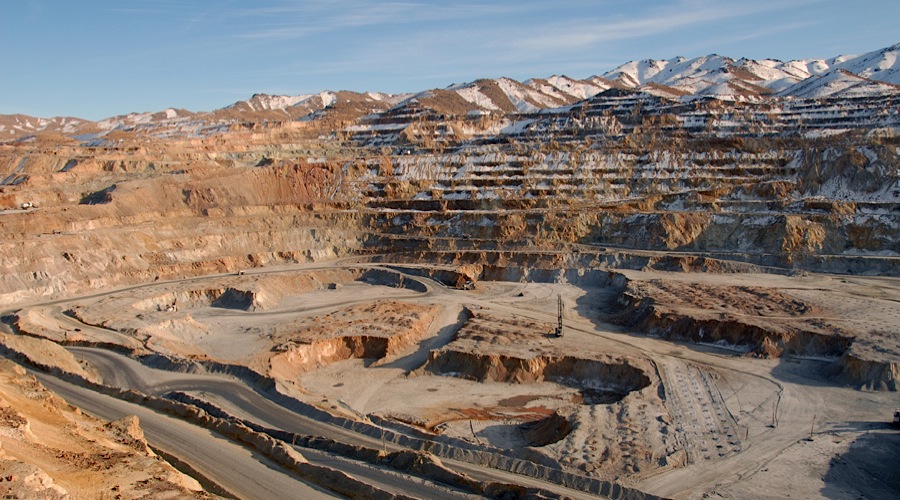
Iran goes beyond oil — to sign $5.4bn in mining deals with Italy, France

Iran’s full-re-entry into the world energy market upon the lifting of sanctions has hurt oil prices further, sending them below the psychologically significant $30-a-barrel level last week.
The question in everyone’s mind now is how Iran's incursion into the mining industry will affect an already struggling sector, hit by a sustained rout in commodity prices.
Investor took renewed interest on the subject Monday, as Iran’s Deputy Industry, Mine and Trade Minister, Mehdi Karbasian, said his country hopes to finalize investment plans worth about $5.4 billion during President Hassan Rouhani visit to Italy, where he arrived Monday, on the first leg of a landmark visit to Europe.
The potential deals, Tasnim News Agency reports, include joint investments in the steel production chain in southern Iran, in an area stretching from Chabahar on the Gulf of Oman to Bandar Abbas and Jask in the Persian Gulf.
Karbasian is also expected to ink a contract with Italian and Chinese firms to carry out the second phase of Salco, Iran’s largest aluminum smelter plant, Trend News Agency reports (subs. required).
The minister said another memorandum of understanding has been worked out with a French company for downstream aluminum projects, which the parties plan to finalize during Rouhani’s visit to Paris.
Italian firms are interested in aluminum and steel projects, while French companies seek also technical cooperation, Karbasian has said in the past.
Japan’s leading steelmakers are also said to be eying Iran’s mining potential, especially its titanium projects.
Tehran is opening $29 billion of mining projects to foreign investors, roughly equal the oil and gas investments up for grabs.
Last year, the mines ministry announced the discovery of two large coal and iron ore deposits in the Lut desert, in central Iran, which is already the number four supplier of iron ore to China.
According to official data, Iran ships some 15–20 million tonnes of iron ore a year, though that figure would have fallen substantially given the slide in the price and the high cost of mining inside the country.
Currently, the nation has more than 3,000 active mines, mostly privately owned, which focus on copper, iron ore and heavy rare earth elements.


Trump weighs using $2 billion in CHIPS Act funding for critical minerals

Codelco cuts 2025 copper forecast after El Teniente mine collapse

Electra converts debt, launches $30M raise to jumpstart stalled cobalt refinery

Barrick’s Reko Diq in line for $410M ADB backing

Abcourt readies Sleeping Giant mill to pour first gold since 2014

Nevada army depot to serve as base for first US strategic minerals stockpile

SQM boosts lithium supply plans as prices flick higher

Viridis unveils 200Mt initial reserve for Brazil rare earth project

Tailings could meet much of US critical mineral demand – study

Kyrgyzstan kicks off underground gold mining at Kumtor

Kyrgyzstan kicks off underground gold mining at Kumtor

KoBold Metals granted lithium exploration rights in Congo

Freeport Indonesia to wrap up Gresik plant repairs by early September

Energy Fuels soars on Vulcan Elements partnership

Northern Dynasty sticks to proposal in battle to lift Pebble mine veto

Giustra-backed mining firm teams up with informal miners in Colombia

Critical Metals signs agreement to supply rare earth to US government-funded facility

China extends rare earth controls to imported material

Galan Lithium proceeds with $13M financing for Argentina project

Kyrgyzstan kicks off underground gold mining at Kumtor

Freeport Indonesia to wrap up Gresik plant repairs by early September

Energy Fuels soars on Vulcan Elements partnership

Northern Dynasty sticks to proposal in battle to lift Pebble mine veto

Giustra-backed mining firm teams up with informal miners in Colombia

Critical Metals signs agreement to supply rare earth to US government-funded facility

China extends rare earth controls to imported material

Galan Lithium proceeds with $13M financing for Argentina project

Silver price touches $39 as market weighs rate cut outlook

















